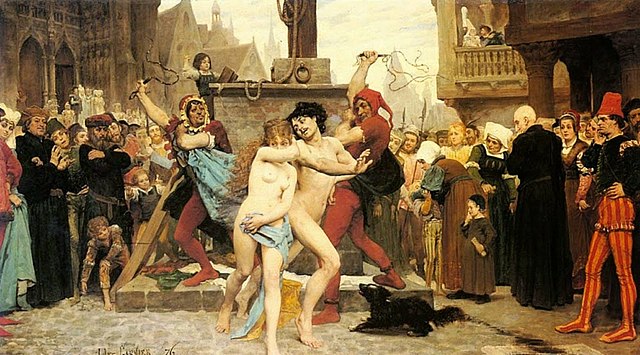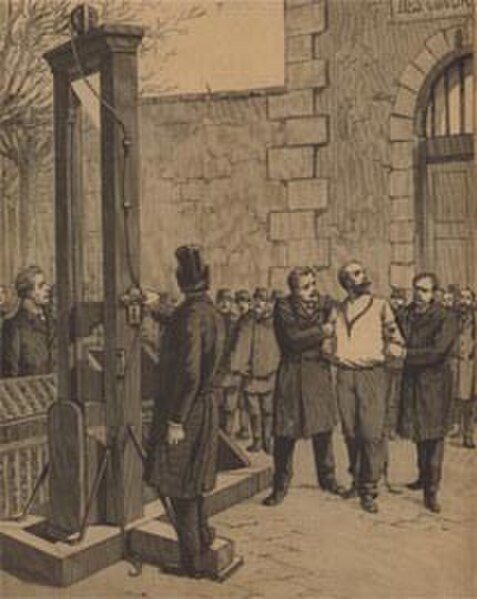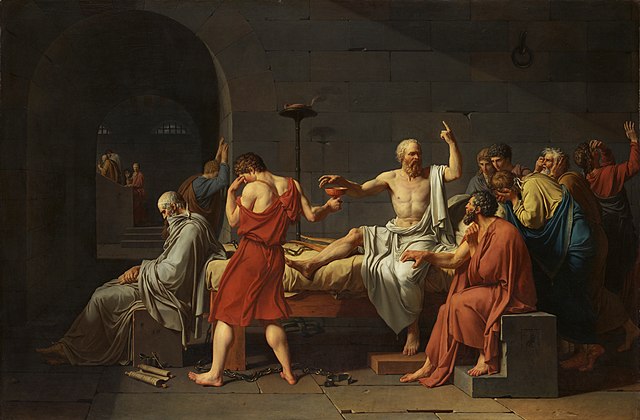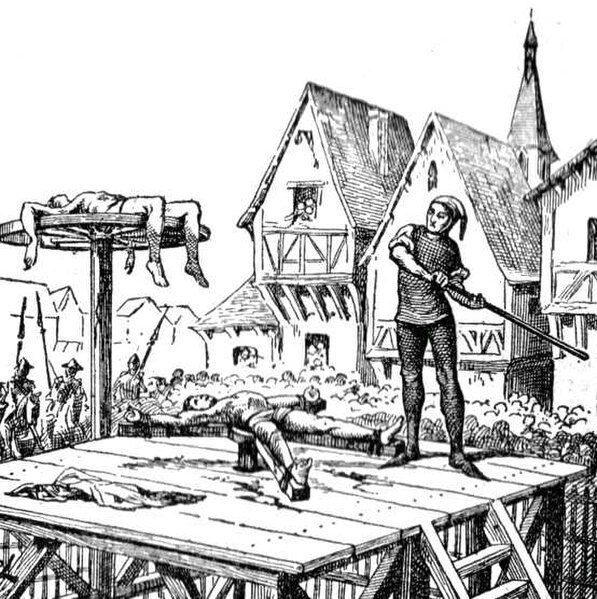Adultery is extramarital sex that is considered objectionable on social, religious, moral, or legal grounds. Although the sexual activities that constitute adultery vary, as well as the social, religious, and legal consequences, the concept exists in many cultures and shares some similarities in Christianity, Judaism and Islam. Adultery is viewed by many jurisdictions as offensive to public morals, undermining the marriage relationship.
Public punishment of adulterers in Venice, 17th century
Susannah accused of adultery, by Antoine Coypel
Anne Boleyn was found guilty of adultery and treason and executed in 1536. There is controversy among historians as to whether she had actually committed adultery.
Le supplice des adultères, by Jules Arsène Garnier, showing two adulterers being punished
Capital punishment, also known as the death penalty and formerly called judicial homicide, is the state-sanctioned practice of killing a person as a punishment for a crime, usually following an authorised, rule-governed process to conclude that the person is responsible for violating norms that warrant said punishment. The sentence ordering that an offender be punished in such a manner is known as a death sentence, and the act of carrying out the sentence is known as an execution. A prisoner who has been sentenced to death and awaits execution is condemned and is commonly referred to as being "on death row". Etymologically, the term capital refers to execution by beheading, but executions are carried out by many methods, including hanging, shooting, lethal injection, stoning, electrocution, and gassing.
Anarchist Auguste Vaillant about to be guillotined in France in 1894
The Christian Martyrs' Last Prayer, by Jean-Léon Gérôme (1883). Roman Circus Maximus.
The Death of Socrates (1787), in the Metropolitan Museum of Art in New York City
The breaking wheel was used during the Middle Ages and was still in use into the 19th century.








